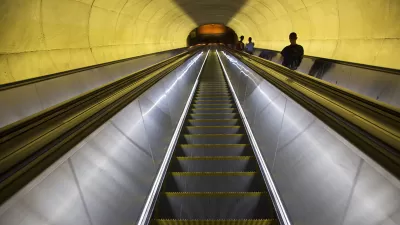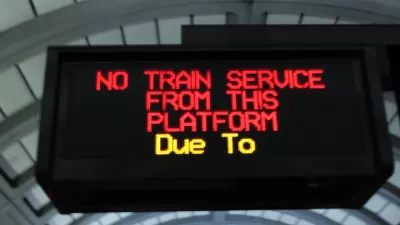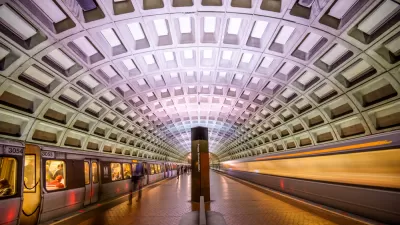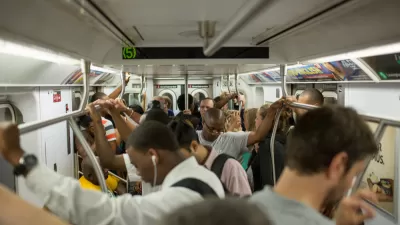For the first time in years, there is talk of expanding service on existing rail lines in the Washington Metropolitan Area Transit Authority (Metro) system.

"Metro officials are seeking to institute a slew of changes in their upcoming budget to win back riders — including charging a flat $2 fare for subway trips taken on weekends, expanding the rush-hour window to include later times on weekday mornings and evenings and increase all trains to their maximum length of eight cars," reports Martine Powers.
The proposed service changes were included in Metro's budget for 2020, which must still be approved by the Metro Board of Directors. The news of the investment in Metro service comes after years of expensive malfunctions, cuts in service, increased fares, and declining ridership.
Funding obstacles must still be overcome to achieve the goals of the proposals, reports Powers. "While there are a number of improvements such as pass discounts and automatic train operations that we can do within the new cap on subsidy growth, the service improvements I am including in this budget will need the region’s support and the Board’s approval," said Metro General Manager Paul J. Wiedefeld in a statement released on Monday. According to Powers, the proposed changes would require more than the increased funding approved earlier this year by Maryland, Virginia, and Washington, D.C.
Specific improvements proposed in the budget include extending Yellow Line Service, running Red Line trains to Glenmont during rush hour, "which would double rush hour service on the northeastern end of the Red Line," according to Powers.
FULL STORY: Metro wants to lower weekend fares and add more evening service to win back riders

Maui's Vacation Rental Debate Turns Ugly
Verbal attacks, misinformation campaigns and fistfights plague a high-stakes debate to convert thousands of vacation rentals into long-term housing.

Planetizen Federal Action Tracker
A weekly monitor of how Trump’s orders and actions are impacting planners and planning in America.

In Urban Planning, AI Prompting Could be the New Design Thinking
Creativity has long been key to great urban design. What if we see AI as our new creative partner?

King County Supportive Housing Program Offers Hope for Unhoused Residents
The county is taking a ‘Housing First’ approach that prioritizes getting people into housing, then offering wraparound supportive services.

Researchers Use AI to Get Clearer Picture of US Housing
Analysts are using artificial intelligence to supercharge their research by allowing them to comb through data faster. Though these AI tools can be error prone, they save time and housing researchers are optimistic about the future.

Making Shared Micromobility More Inclusive
Cities and shared mobility system operators can do more to include people with disabilities in planning and operations, per a new report.
Urban Design for Planners 1: Software Tools
This six-course series explores essential urban design concepts using open source software and equips planners with the tools they need to participate fully in the urban design process.
Planning for Universal Design
Learn the tools for implementing Universal Design in planning regulations.
planning NEXT
Appalachian Highlands Housing Partners
Mpact (founded as Rail~Volution)
City of Camden Redevelopment Agency
City of Astoria
City of Portland
City of Laramie





























